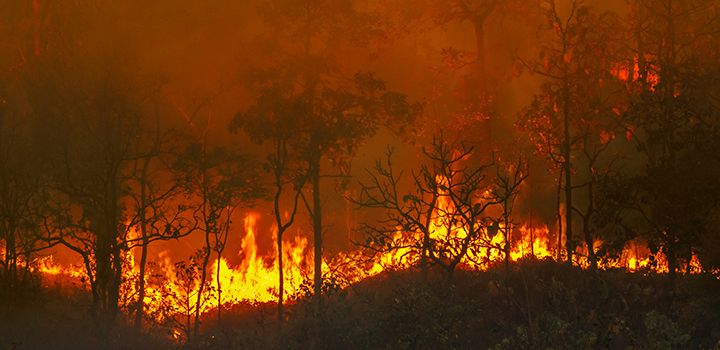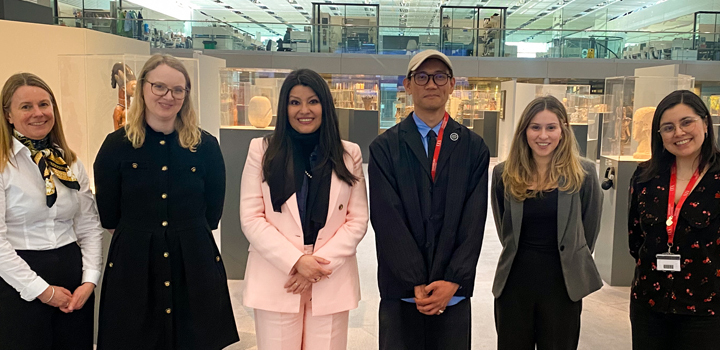UEA jumps into world top 60 in the QS World University Rankings: Sustainability 2025
By: Communications

The University of East Anglia (UEA) has jumped from =81st to =54th in the world in the new QS World University Rankings: Sustainability 2025, released today (10 December), which measure an institution's ability to tackle the world’s greatest environmental, social and governance challenges.
UEA’s new rank has improved its standing internationally and nationally:
World ranking: =54th out of 1751 institutions
European ranking: 30th out of 563 institutions
UK ranking: 18th out of 99 institutions
The rankings are calculated based on three performance areas; environmental impact, social impact, and governance, with the metrics underpinning these using a wide range of data types, including research data, survey data, reputation data, alumni data, and national-level statistics.
The rise in UEA’s overall rank was largely driven by an increase in the environmental impact lens, with the overall position for environmental impact rising by 55 places from 84th last year to =29th this year.
Prof David Maguire, Vice Chancellor of UEA, said: “Seeing UEA rise nearly 30 places in the latest QS Sustainability rankings is fantastic news. Being placed amongst the top institutions noted for their ability to tackle the world’s greatest environmental, social and governance challenges is indicative of the hard work and dedication of teams across the whole university, both historically and in the present day.”
Here are a few examples that, whilst not necessarily being part of the data for this year’s rankings, showcase UEA’s strengths and vision across the same categories.
Environmental impact
The environmental impact lens investigates areas including environmental research.
State of Wildfires report

Unprecedented wildfires in Canada and parts of Amazonia last year were at least three times more likely due to climate change and contributed to high levels of CO2 emissions from burning globally, according to the first edition of a new systematic review - the State of Wildfires report.
The report, which will be published annually, is co-led by UEA, the UK Centre for Ecology & Hydrology, the Met Office, and European Centre for Medium-Range Weather Forecasts.
Unlocking the Antarctic’s carbon secrets
In January, a team of scientists, led by UEA's Prof Karen Heywood, embarked on an expedition to the Antarctic to investigate how carbon dioxide moves and transforms in the Southern Ocean. The PICCOLO cruise (Processes Influencing Carbon Cycling: Observations of the Lower limb of the Antarctic Overturning) took place over 52 days aboard the RRS Sir David Attenborough and was covered widely across UEA, including through a blog charting the vessel's progress.
Social impact
The social impact lens investigates areas such as health and wellbeing, impact of education, and knowledge exchange.
Mindfulness and Active Hope course

In 2022, UEA delivered the UK’s first mindfulness course to help UEA students cope with their climate anxieties, for which it gained significant media coverage. The free course, which is about to run for the third time, was developed through a collaboration between UEA and local mental health charity, Norfolk and Waveney Mind.
Active hope is a concept by resilience expert Chris Johnstone and eco-philosopher Joanna Macy, described as ‘about becoming active participants in bringing about what we hope for’.
Governance
Environmental Sustainability Strategy

As one of the key themes underpinning the Organisational Development strand of UEA Strategy 2030, the Environmental Sustainability Strategy will reiterate the university’s continued commitment to making positive changes across transport, buildings, energy usage and more.
The full list of QS World University Rankings: Sustainability 2025 can be found on the QS website.
Related Articles

Stop the Razor – a filmmaker’s fight for a future without FGM
Since studying at UEA, Ayoola Jolayemi has continued to raise awareness of global issues through his filmmaking, most recently with his internationally acclaimed documentary focused on the fight against female genital mutilation (FGM).
Read more
Education Minister becomes 1,000th School Climate Ambassador
The East’s Climate Ambassadors are celebrating as a Minister has joined their ranks as the UK’s 1,000th volunteer to step into this role.
Read more
El Salvador Ambassador to the UK, Diana Vanegas, visits UEA
UEA was delighted to host a visit by Her Excellency Diana Vanegas, El Salvador Ambassador to the United Kingdom, in Norwich on 28 March 2025.
Read more